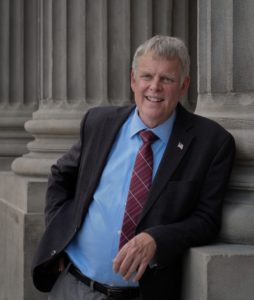
All Idahoans deserve the opportunity to enjoy the highest quality of life, and for this to happen, necessary improvements must be made to the state’s behavioral health system.
Behavioral health issues impact our communities at all levels: schools, hospitals, courts, jails, and more. This is why the Idaho Behavioral Health Council — which features members from each branch of government, including the two of us — was created. So, we can ensure individuals living with mental illness and/or addiction receive the services they need when they need them.
In the past year, we’ve been developing a strategic plan for Idaho, by working collaboratively with local governments, medical providers, community partners, and consumers of behavioral health services and their families. We took a systematic look at the entire system to decrease agency silos, reduce barriers to recovery and treatment, and identify what Idaho is missing.
This summer, we presented the first draft of the plan to Gov. Brad Little, legislative leadership, and the Idaho Supreme Court. It covers state actions through 2024, and includes a set of 34 recommendations — nine of which were identified as key priorities for the next three years — to improve Idahoans’ access to care.
Access to providers who are paid fairly is a key recommendation. Currently all of Idaho, but particularly rural Idaho, lacks access to incensed and/or certified behavioral health providers. Our recommendation to developing a comprehensive workforce plan across all our regions will help increase the amount of providers in Idaho. Additionally, we recommended piloting a federal Certified Community Behavioral Clinic model, which in other states has led to more providers and more treatment options.
Idaho’s lack of behavioral assistance has resorted to families and individuals finding the judicial system as their only means for assistance. All too often in Idaho a person with behavioral health challenges ends up arrested or in jail, and that’s their first interaction with the behavioral health system. We have a set of recommendations that seek to involve people who need care earlier and minimize the involvement of the criminal justice system. Our goal is make it easy for folks to access the right care when they need it during the whole spectrum of their treatment and recovery process.
We also have a series of recommendations on recovery and resiliency. It’s tragic for a child to be traumatized growing up, and we need to avoid the lifelong effects that can follow. We will build programs to promote longterm resiliency. Recovering from addiction or a mental health disease is often a lifelong process. We know our regional recovery community centers are critical components, which is why we must improve the support they receive and also identify other services we may be missing.
While there is still much work to be done to ensure this plan becomes a reality, it is a giant step forward for our state. Each year, more and more Idahoans are seeking behavioral health services due to a myriad of reasons. But there are even more who don’t seek help — we must change that.
Substance abuse and mental health issues can ruin people’s lives. They are diseases that need to be treated, not stigmatized. We were really inspired by all the medical professionals, government officials, and plain folks with these experience who contributed to this plan. Lots of care but also clear-eyed focus was brought to bear, and we are encouraged we have a plan that will significantly help Idahoans in the long run.
We look forward to learning how the plan’s recommendations will be implemented across state agencies, and are so grateful to have participated in this process.

